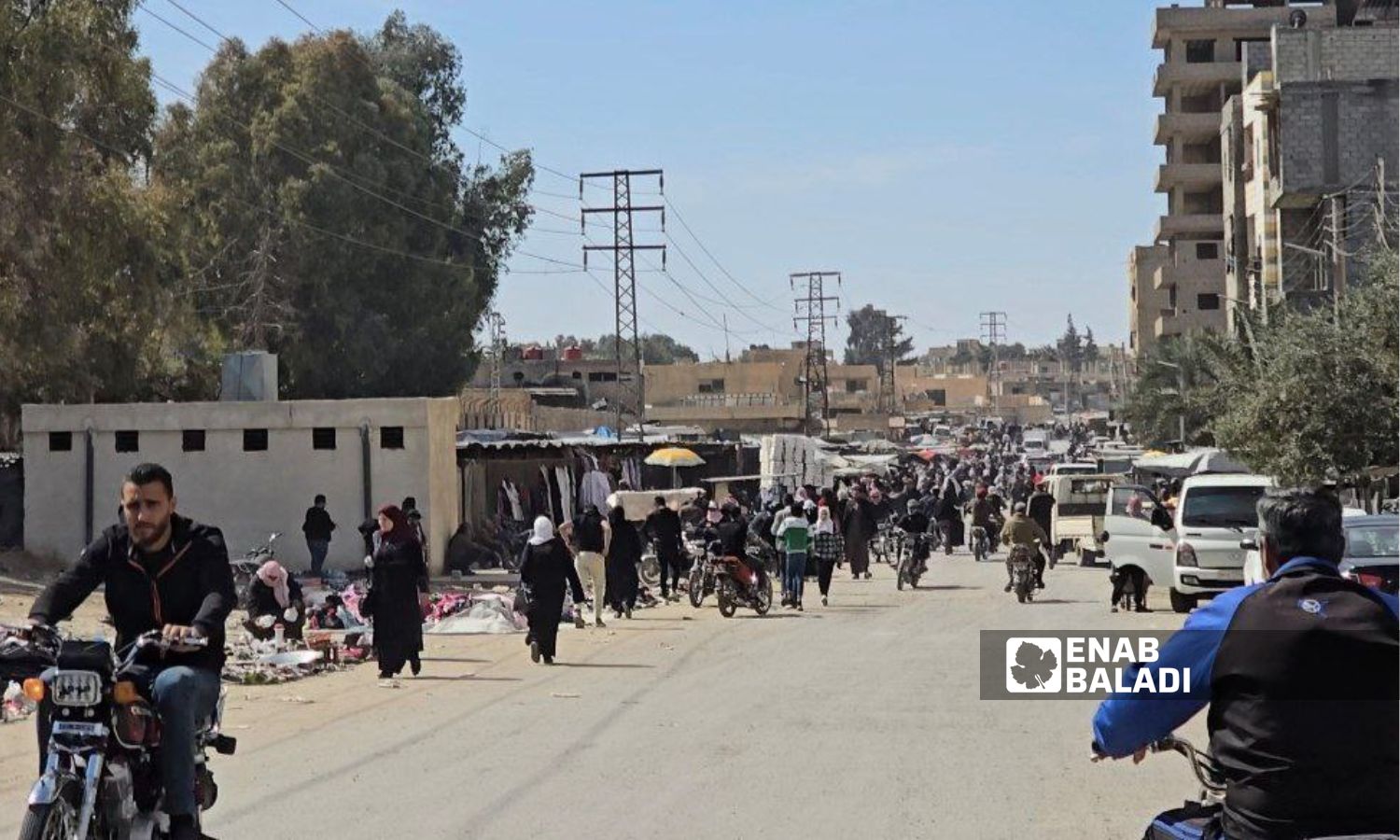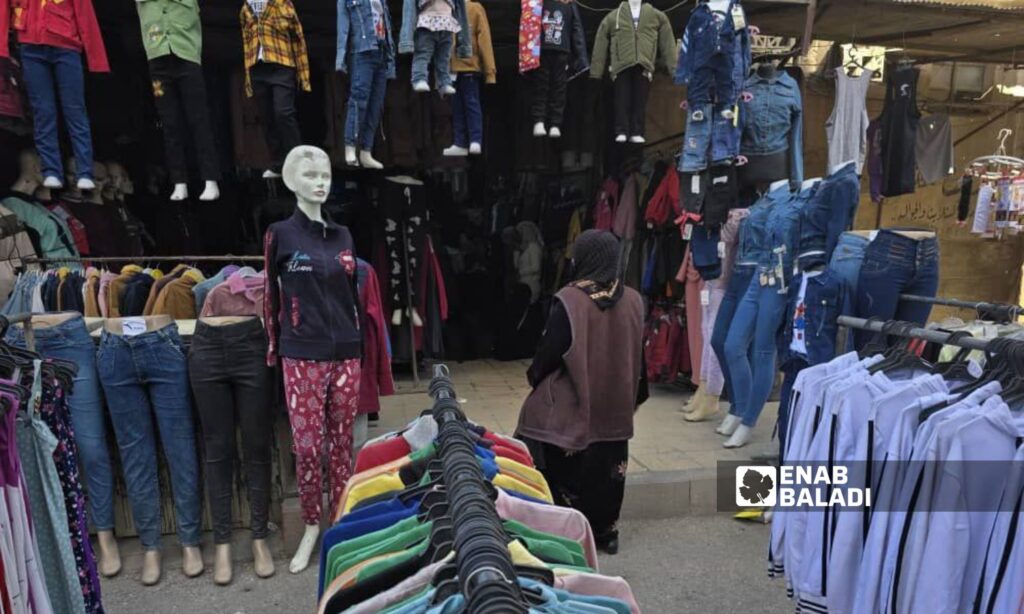The markets in the city of Deir Ezzor are witnessing heavy crowds days before the arrival of Eid al-Fitr, especially the popular ones, which have become the choice for families with limited income amid ongoing economic crises and price fluctuations.
The popular markets display a wide range of goods and Eid-related items, such as sweets and clothing, with commercial activity increasing since March 20 of this year, corresponding to the 20th of Ramadan.
Samer Rowaily, a vendor at the Fuad Cinema market, stated that the turnout this year is relatively good, despite rising prices, as families strive to buy what they need to please their children during the Eid holiday.
He added to Enab Baladi that the prices of clothing have not decreased for months, attributing this to the high rent of commercial shops and the purchasing of some goods at high prices before the fall of Bashar al-Assad’s regime.
Clothing prices in the markets varied, with children’s clothing ranging between 100,000 Syrian pounds (10 USD) and 300,000 pounds, depending on size and quality.
For youth clothing, the price of good quality jeans was 100,000 pounds, and a sweater for 125,000 pounds.

The popular markets in the city of Deir Ezzor are bustling days before Eid al-Fitr – March 26, 2025 (Enab Baladi/Obadah al-Sheikh)
Ahmed al-Faraj, the owner of a sweets shop on al-Wadi Street, described this year’s demand for Eid sweets, especially “Kleija,” as good.
He added to Enab Baladi that the demand has increased compared to previous years, with the price of a kilogram of “Kleija” set at 25,000 pounds, and a kilogram of “Maamoul” at 30,000 pounds.
A high demand for “Kleija” before Eid al-Fitr in Deir Ezzor – March 26, 2025 (Enab Baladi/Obadah al-Sheikh)
Eid al-Fitr is seen as an opportunity to boost the local economy in Deir Ezzor, as demand for clothing, sweets, and foodstuffs increases, which helps improve vendors’ income.
Majed al-Salamah, the owner of a clothing shop, pointed out the economic challenges faced by families due to low incomes and rising prices, noting that the coming of the holiday has contributed to the activity of commercial shops after months of stagnation.
Families met by Enab Baladi hope for improvements in economic conditions in the future, wishing to celebrate holidays under better circumstances.
After the fall of the Syrian regime and the control of the interim Damascus government over the city center of Deir Ezzor, the spread of stalls selling various types of used clothing and shoes (bale) has increased, creating an opportunity for families to purchase their needs at lower prices.
The sources of “bale” vary, coming from Idlib via Turkey and from Qamishli coming from Iraq, which has also in their prices.











